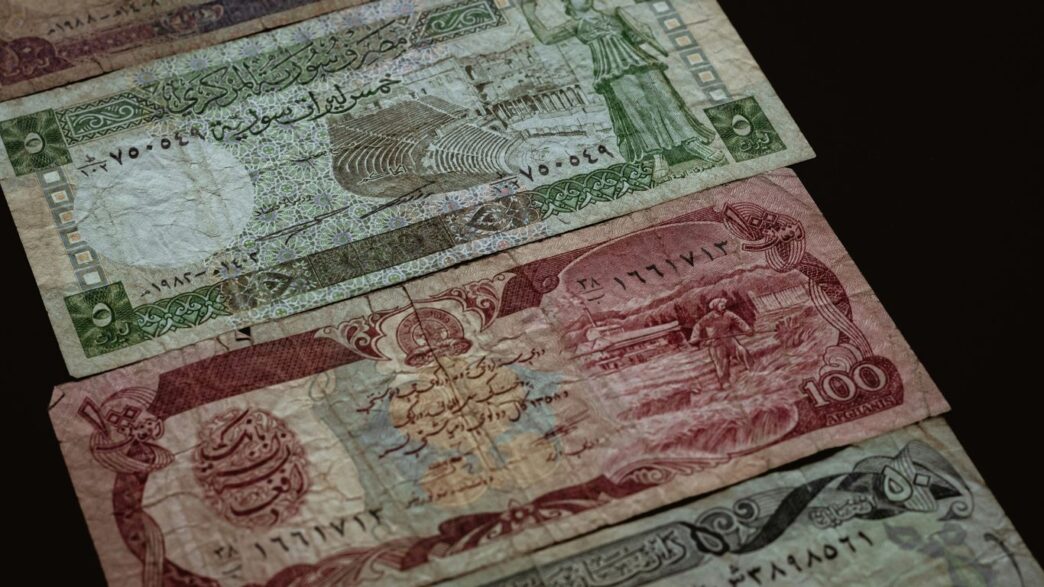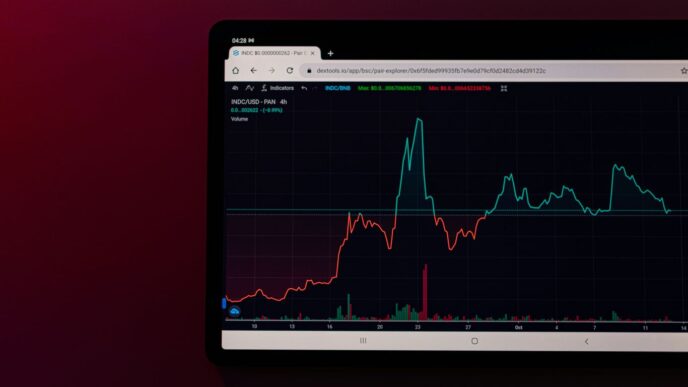Thinking about where to park your crypto in 2025? It’s a big question, especially with taxes always looming. Many countries are starting to see the appeal of digital assets and are making it easier for people to invest without taking a huge chunk out of your profits. This isn’t about hiding money; it’s about smart planning. We’ve looked at some of the top spots that are making waves for being a crypto tax free country, offering clear rules and good reasons to set up shop. Let’s check out some options that might just be your next move.
Key Takeaways
- The United Arab Emirates (UAE) offers a 0% personal income tax, making it attractive for crypto investors and businesses looking for a tax-free environment.
- El Salvador has made Bitcoin legal tender and offers 0% tax on Bitcoin transactions, positioning itself as a pioneer for everyday crypto use.
- Malta, known as ‘Blockchain Island,’ generally doesn’t tax long-term crypto capital gains, appealing to investors seeking a Mediterranean base.
- Portugal offers tax-free gains on cryptocurrency held for over a year, making it a solid choice for long-term investors and digital nomads.
- Switzerland, with its ‘Crypto Valley,’ provides a stable environment and a private investor-friendly approach to digital assets.
United Arab Emirates
Alright, let’s talk about the United Arab Emirates, or the UAE as most people call it. This place has really been making waves in the crypto world, and for good reason. The biggest draw here is the lack of personal income tax and capital gains tax on crypto earnings. Yep, you read that right. Whether you’re selling crypto, mining it, or getting paid in digital assets, you generally don’t owe taxes on those profits. It’s a pretty sweet deal.
Now, it’s not all sunshine and zero taxes, especially if you’re running a crypto business. Since mid-2023, there’s a 9% corporate tax on profits over a certain amount, which is something to keep in mind. But here’s where it gets even better for individuals: as of October 2024, the UAE’s Federal Tax Authority announced that crypto transactions are exempt from the 5% Value Added Tax (VAT). This is a pretty big move and makes living and trading crypto there even more attractive.
Dubai, in particular, has been super proactive. They’ve got regulatory bodies like VARA (Virtual Assets Regulatory Authority) that are setting clear rules for crypto businesses. This means there’s a more stable and predictable environment for anyone involved in the space. It’s not just about taxes; it’s about having a place that’s actively trying to be a hub for digital assets.
Of course, no place is perfect. The cost of living, especially in places like Dubai, can be pretty high, and the summers are famously hot. But if you’re looking for a place with a forward-thinking approach to crypto and a tax-friendly environment for your personal gains, the UAE is definitely worth a serious look.
El Salvador
El Salvador really made waves when it decided to make Bitcoin legal tender back in 2021. It was the first country to do that, and honestly, it’s still a pretty wild experiment. The idea was to get more people using crypto and attract foreign money, and they’ve definitely put some effort into making it happen.
So, what’s the deal tax-wise? Basically, if you make money from Bitcoin, you don’t pay capital gains tax on it. This applies whether you’re just trading it or using it to buy stuff. They also don’t tax foreign investors on their Bitcoin holdings. It’s a pretty big deal if you’re looking to move your crypto assets around without Uncle Sam taking a cut.
Here’s a quick rundown of why it’s interesting for crypto folks:
- Zero Capital Gains Tax: Profits from Bitcoin transactions are tax-free.
- No Income Tax on Crypto Holdings: Foreign investors don’t get taxed on what they hold.
- Legal Tender Status: Bitcoin is officially recognized, making transactions smoother.
- Bitcoin City Plans: They’re even planning a special city that’s supposed to be tax-free and powered by volcanoes. Sounds pretty sci-fi, right?
It’s not all smooth sailing, though. Some big international groups, like the IMF, have raised eyebrows about the financial risks and how they’re managing everything. But El Salvador seems pretty set on its path, pushing forward with its crypto-friendly policies. It’s definitely a place to watch if you’re into the crypto scene and looking for a place with some unique financial rules.
Malta
Malta, often called the "Blockchain Island," has really leaned into the digital asset world. It’s a Mediterranean spot that’s become a big deal for crypto enthusiasts and businesses. If you’re thinking about holding crypto for the long haul, Malta is pretty sweet because there’s no capital gains tax on those long-term investments. That means more of your profits stay in your pocket, which is always a good thing, right?
Now, it’s not all sunshine and zero taxes, though. If you’re actively trading crypto, that might be seen as income, and you could be looking at regular income tax rates. For companies, the corporate tax rate is 35%, which sounds high, but many businesses actually like Malta because they’ve got clear rules for crypto. This legal certainty, thanks to things like the Virtual Financial Assets Act, is a big draw. It makes it easier for crypto companies to set up shop and operate without a ton of guesswork.
Here’s a quick look at what makes Malta stand out:
- Tax Benefits for Long-Term Holders: Zero capital gains tax on crypto held for investment purposes.
- Regulatory Clarity: A well-defined legal framework attracts and protects crypto businesses.
- Crypto Hub Status: Home to many exchanges and blockchain companies, creating a vibrant ecosystem.
So, while active trading might have tax implications, Malta’s approach to long-term holding and its solid regulatory environment make it a strong contender for crypto investors looking for a stable base. You can even explore residency options if you’re looking to make the island your home, with specific investment requirements to consider. It’s a place where digital innovation meets a beautiful island lifestyle, and you can find out more about their crypto tax structuring options here.
Portugal

Portugal used to be the go-to spot in Europe for anyone into crypto, and honestly, it still has a lot going for it. Back in the day, you could basically do whatever you wanted with your crypto without paying a dime in taxes. That changed a bit in 2023, so it’s not quite the wild west it once was.
Now, if you sell your crypto within a year of buying it, you’re looking at a 28% capital gains tax on whatever profit you made. This basically puts crypto on the same level as other investments for short-term gains. But here’s the kicker: if you hold onto your crypto for more than 365 days, those profits are generally tax-free. So, the government is really pushing people to just hold on for the long haul, you know, the whole ‘HODL’ philosophy.
This shift happened partly because so many wealthy crypto folks moved there, and it started messing with things like housing prices, especially in places like Lisbon and Porto. People were getting priced out, and the government had to do something. They’re also rolling out a new tax system, NHR 2.0, starting in 2025. It’s supposed to be more in line with other financial stuff and attract skilled workers, but it’s still a bit up in the air how exactly it’ll play out for crypto.
Here’s a quick rundown of what you need to know:
- Long-Term Holdings: Profits from crypto held for over a year are typically not taxed.
- Short-Term Holdings: A 28% capital gains tax applies to profits from crypto sold within a year.
- Crypto-to-Crypto Swaps: Generally, trading one crypto for another (like Bitcoin for a stablecoin) isn’t taxed, as long as it’s not your main job and you’re not doing it constantly.
- Everyday Spending: Good news – there’s no VAT on everyday crypto transactions, so you can grab a coffee or a pastel de nata with your digital coins without extra charges.
Even with the new rules, Portugal remains a pretty attractive place for crypto enthusiasts and businesses. It offers a great lifestyle, especially if you’re a digital nomad, and the EU access is a big plus. Just make sure you understand the tax rules, especially if you’re planning on frequent trading.
Switzerland
Switzerland, often called the ‘Crypto Valley,’ is a big player when it comes to crypto-friendly places. It’s got this reputation for being super stable and having a clear approach to digital assets. For regular folks just holding crypto, there’s generally no capital gains tax on profits. This means if you sell your crypto for more than you bought it, you usually don’t owe taxes on that profit, as long as it’s just part of your personal investments and not your main job.
However, it’s not entirely tax-free for everything. If you’re earning crypto through things like mining or staking, that income can be taxed. Also, the total value of all the crypto you own at the end of the year might be subject to wealth tax, depending on where you live in Switzerland. The exact rules and rates can change from one canton to another, so it’s good to check locally.
Zug, for instance, is famous for being super pro-crypto. They even started accepting Bitcoin and Ether for tax payments a few years back, up to a certain amount. This shows they’re really trying to make crypto work in the real world. Having these clear rules helps a lot of blockchain companies set up shop there.
Here’s a quick look at how taxes might work:
- Capital Gains: Generally tax-free for private investors.
- Mining/Staking Income: Subject to income tax.
- Year-End Holdings: May be subject to wealth tax.
Switzerland has been working on its financial regulations, with discussions happening about new rules for payment tokens, which is a sign they’re keeping up with the digital finance world. It’s a place that balances tradition with a forward-thinking attitude towards crypto.
Singapore
Singapore is a place that really knows how to blend order with new tech. It’s not just a big money center; it’s super clean, green, and works like a well-oiled machine, making it a great spot for your crypto. Think of it as a gateway to what finance might look like down the road, where your digital coins get the same attention as your regular bank account.
The big draw here is that Singapore doesn’t tax capital gains on crypto. This means if you make a profit from trading, that money is yours to keep and reinvest, or, you know, spend on some amazing food or a visit to those cool futuristic gardens they have.
It’s not all just about the tax benefits, though. Singapore has put a lot of effort into making sure crypto services are safe and sound. They have rules in place, so the companies you deal with are licensed and reliable. This gives you peace of mind while you’re managing your digital money.
Plus, Singapore is a hotspot for crypto innovation. Lots of big exchanges and fintech companies have set up shop here. So, you’re basically hanging out in a place that’s actively shaping the future of digital finance. It’s a pretty interesting scene to be a part of.
Here’s a quick look at how it stacks up:
- No Capital Gains Tax: Profits from selling crypto are generally not taxed.
- Regulatory Clarity: A clear framework for crypto businesses provides security.
- Innovation Hub: Home to many leading crypto exchanges and startups.
- Taxable Activities: Be aware that if you’re actively trading crypto as a business or earning income from it (like mining or staking), that income is usually subject to income tax, which can go up to 22%.
Germany
Germany might not be the first place you think of for crypto tax benefits, but it actually has some pretty good rules for people who like to hold onto their digital assets for a while. It’s not a complete free-for-all, but if you’re patient, you can do quite well.
The main draw here is that if you hold onto your cryptocurrency for more than a year, any profits you make from selling it are completely tax-free. This is a big deal and really encourages a long-term approach, which many see as healthier for the market anyway. It means you don’t have to worry about a huge tax bill if you decide to cash out after a year or more of holding.
There are also some smaller exemptions to be aware of. For instance, if your crypto profits in a given year don’t go over €1,000, they’re generally not taxed. Also, there’s a small income threshold of €256 per year for crypto-related income that’s tax-exempt. These little breaks can add up, especially for those who are just starting out or have smaller crypto holdings.
However, it’s not all sunshine and rainbows. If you’re actively trading and selling your crypto within a year, you’ll likely face a pretty steep tax rate, potentially up to 45%, depending on your overall income. Also, if you’re earning income through crypto mining or receiving crypto as payment for goods or services, that income is generally taxable. So, while Germany rewards long-term holding, short-term speculation or earning income directly from crypto activities is taxed more heavily.
Here’s a quick rundown of the key points:
- Long-Term Holdings: Profits from selling crypto held for over 12 months are 100% tax-free.
- Small Gains Exemption: Profits up to €1,000 per year are generally tax-exempt.
- Minor Income Exemption: Crypto-related income below €256 annually is tax-free.
- Short-Term Trading: Selling crypto held for less than a year can incur taxes up to 45%.
- Crypto Income: Earnings from mining or receiving crypto as payment are typically taxable.
So, while Germany isn’t a tax haven in the traditional sense, its favorable treatment of long-term crypto investors makes it a solid option for those who prefer a buy-and-hold strategy.
Cayman Islands
The Cayman Islands have really leaned into the crypto world, making a name for themselves as a place where taxes on digital assets are pretty much non-existent. Seriously, there are no direct taxes on things like income, capital gains, or corporate profits from crypto. It’s a big draw for folks looking to keep more of their hard-earned crypto gains.
Back in 2020, they put the Virtual Asset Service Providers Act into play. This means if you’re running a crypto trading platform or anything similar, you’ve got to get registered or licensed by the Cayman Islands Monetary Authority (CIMA). It’s all about keeping things above board and in line with international rules on fighting money laundering and terrorism financing. They’ve even committed, along with a bunch of other places, to have crypto regulations fully sorted by 2027. It shows they’re serious about staying a go-to spot for crypto business.
Here’s a quick rundown of why it’s attractive:
- Zero Capital Gains Tax: Keep 100% of your crypto profits without worrying about taxes.
- Established Financial Hub: They have a solid history in traditional finance, which brings a sense of stability and familiarity to crypto operations.
- Regulatory Clarity: The VASP Act provides a clear framework for crypto businesses, even as they work towards more comprehensive regulations.
- Attracts Sophisticated Players: The jurisdiction’s financial infrastructure and confidentiality draw in major companies and investment funds.
Hong Kong

Hong Kong is really making a name for itself as a place to be for crypto folks. It’s this bustling city where East meets West, and they’re trying hard to be a big player in the finance world, including digital assets.
The big draw here is the tax situation, especially for long-term holders. Generally, if you’re an individual and you’ve held onto your crypto for a while, you won’t pay capital gains tax on those profits. That’s pretty sweet, right? However, it’s not quite that simple for everyone. If the Hong Kong Inland Revenue Department (IRD) decides your crypto trading looks more like a business activity – think frequent trades or buying and selling with the main goal of making a quick buck – then those profits could be taxed. This falls under their Profits Tax Ordinance, with rates typically between 15% and 16.5%. They look at how often you trade, how long you hold things, and what your intentions seem to be.
Things got a bit more structured in June 2023 when the Securities and Futures Commission (SFC) rolled out new rules for crypto trading platforms. These platforms now have to follow some pretty strict guidelines, covering things like preventing money laundering, keeping your data safe with cybersecurity, and making sure investors are looked after.
More recently, in November 2024, Hong Kong put forward some new tax exemption ideas. These are mainly aimed at attracting big players like hedge funds, private equity firms, and family offices. The proposal is to exempt them from taxes on gains from cryptocurrencies and other alternative assets. This is a clear move to boost Hong Kong’s standing as a global financial center and keep up with places like Singapore.
So, while it’s not a completely hands-off approach for every single crypto transaction, Hong Kong offers some really attractive benefits, especially if you’re looking at it from a business or institutional angle, or if you’re a long-term investor. It’s definitely a spot worth checking out for your crypto ventures.
Georgia
Georgia is a pretty interesting spot if you’re into crypto, especially if you’re a miner. It’s got this reputation as a bit of a mining miracle, and honestly, it makes sense when you look at the costs. The electricity here is super cheap, which is a huge deal when you’re running those power-hungry mining rigs 24/7. It’s not just for the big operations either; this low cost of energy makes it really affordable for anyone working remotely or starting a tech business.
What’s really cool for individuals is that Georgia doesn’t tax your crypto profits. Yep, you read that right. Any gains you make from selling crypto? They’re yours to keep. This is a pretty big deal, especially when you compare it to other places. It means you can spend your earnings exploring places like the old city of Tbilisi or hiking in the Caucasus Mountains without worrying about the taxman taking a cut.
Here’s a quick rundown of why Georgia stands out:
- No Income Tax on Crypto Profits: Keep all your earnings from selling digital assets.
- Low Electricity Costs: A major advantage for cryptocurrency miners and a general benefit for remote workers.
- Import Duty Exemptions: Bringing in mining equipment? You won’t pay customs duties or VAT on it.
- VAT Exemption on Crypto Exchanges: Swapping crypto for regular money is also tax-free.
For businesses involved in mining, there’s a corporate income tax of 15% on net profits, but mining itself is exempt from VAT. Plus, importing mining gear is duty and VAT-free. It feels like the government is really trying to encourage this industry. It’s a place that blends old traditions with a very modern approach to finance, making it a unique destination for crypto enthusiasts.
Your Next Move
So, we’ve looked at a bunch of places that could be good for your crypto in 2025. It’s clear that countries are really starting to see the potential in digital money, and some are making it pretty easy to keep more of your earnings. Remember, though, what works for one person might not be the best fit for another. Think about what you do with your crypto – are you trading a lot, or just holding for the long haul? Your activity and how much you have in your wallet really matter when picking a spot. It’s not just about finding a tax-free zone; it’s about finding the right tax-free zone for you. Keep an eye on how things change, and maybe chat with a tax pro before you pack your bags. The crypto world is always moving, and so should your strategy.
Frequently Asked Questions
Can I really move to another country and not pay taxes on my crypto?
Yes, it’s possible! Some countries don’t tax crypto gains. But, you usually need to become a resident there to get these tax benefits. Just living there for a bit or having an address might not be enough. It’s like joining a club – you have to be a member to get the perks.
Which countries are the best if I want to live somewhere with no crypto taxes?
Great places to consider are the United Arab Emirates, El Salvador, Malta, Portugal, Switzerland, Singapore, and the Cayman Islands. Each has its own good points, like being super friendly to crypto businesses or having nice weather and a relaxed vibe.
Does it matter what I do with my crypto (like trading or just holding it)?
It definitely matters! If you’re a trader, places like El Salvador or the UAE might be best. If you plan to hold your crypto for a long time, countries like Germany or Portugal could be better. For businesses or miners, places like Switzerland or Malta are good choices.
How do I make sure I’m following the rules when I move for crypto taxes?
The most important thing is to become a real tax resident in the new country. This means following their rules for living there and paying taxes. Also, always check the latest tax laws because they can change. Talking to a tax expert who knows about crypto is a really smart idea.
Are there any special programs to help me move to these countries?
Some countries have special visas or programs to attract people, especially investors or digital workers. For example, Portugal has a ‘Golden Visa’ program, and the UAE has investor visas. These can make it easier to move and become a resident.
What if I just want to keep my crypto safe while I travel?
If you’re just traveling and want to keep your crypto safe, a cold wallet like Tangem is a great option. It keeps your digital money offline, so it’s protected from online hackers, no matter where you are in the world.












